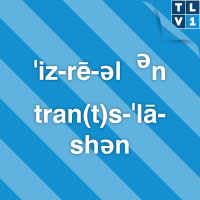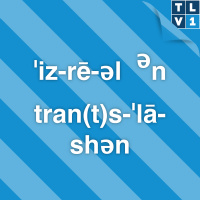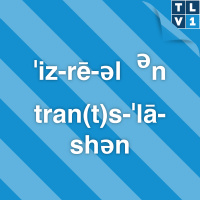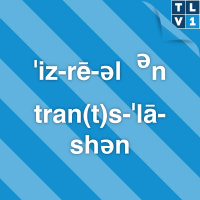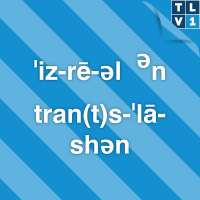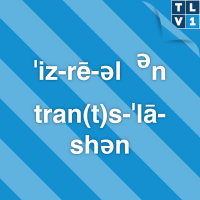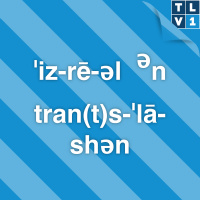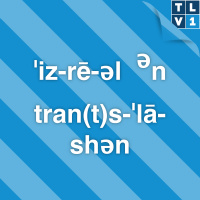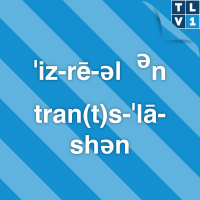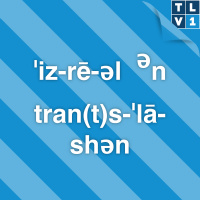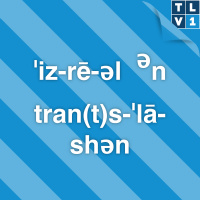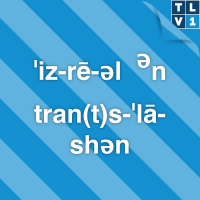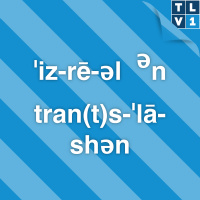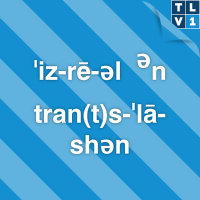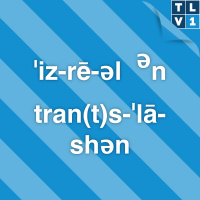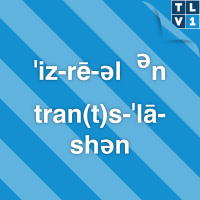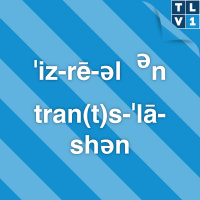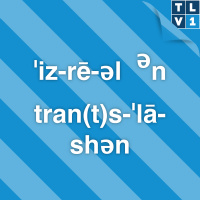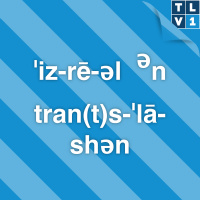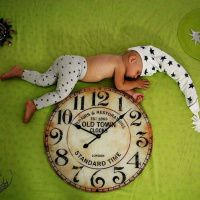Israel In Translation
- Autor: Vários
- Narrador: Vários
- Editora: Podcast
- Duração: 44:23:12
- Mais informações
Informações:
Sinopse
Exploring Israeli literature in English translation. Host Marcela Sulak takes you through Israels literary countryside, cityscapes, and psychological terrain, and the lives of the people who create it.
Episódios
-
Counting the miracles: Hanukkah poetry special
09/12/2015 Duração: 05minOn Sunday night Jews in Israel and all over the world lit the first candle of eight on their hanukkiot. In honor of the holiday, host Marcela Sulak reads poems about miracles, light, and candles, for instance Ronny Someck's "Poem to a Girl Already Born": "On the day you were born the workers of joywarmed their hands against the fire, litwith the match of your life.Night after night I am possessed with the sound of your breathas if it were the glimmer of a lighthouse for a sailor who was almost devouredby the ocean’s teeth." Our 2014 Hanukkah podcast focused on the story of the Maccabi revolt and modern day Hanukkah traditions. This year Marcela conveys the spiritual side of the festival of light. Texts:T. Carmi: "Miracles" (Poetry International Rotterdam)T. Carmi: "Awakening" (Poems Found in Translation)T. Carmi: The Modern Hebrew Poem Itself: A new and updated edition. Ed. Stanley Burnshaw, T. Carmi, Susan Glassman, Ariel Hirschfeld and Ezra Spicehandler. Wayne State University Press, 2003.Ronny Someck &am
-
In the mood for Yoel Hoffmann
02/12/2015 Duração: 06minAs the Israeli school year is finally under way, it might be a good time to examine our professors. Host Marcela Sulak reads the end of Yoel Hoffmann’s latest book, Moods, which starts off with a quirky comparison: "We know some professors who are the exact opposite of wild geese. First of all, they’re always quarreling and therefore they can’t take off and fly in those beautiful formations. Second, their colors. They’re never white. Usually they’re one shade or another of green or yellow. Third, their necks are short." Hoffmann was born in Romania in 1937. He is one of Israel’s foremost experimental novelists, and this is his tenth novel. You can hear an excerpt of Yoel Hoffman’s Katzchen on the October 6 podcast, as well as Hoffman’s more complete bio. Texts:Moods, by Yoel Hoffmann, translated by Peter Cole. New Directions Press, 2015. Music:Philip Glass - Glassworks: Opening, Island, Closing
-
Water, Fire, Earth & Ark: Elements of Salman Masalha
25/11/2015 Duração: 07minThis week we return to the Druze village of Maghar in the upper Galilee, with the poetry of Salman Masalha. He was born there in 1953, three years after his fellow villager, the poet Naim Araidi, featured in our October 13 podcast. Host Marcela Sulak reads Masalha's elemental sequence of poems on Water, Fire, Earth, and the Ark. "Fire is a young body.The winds of doubt will not touch it.It refuses to dress in anythingbut black garments.It exists since the beginningon the fruit of the waters." Masalha has been living in Jerusalem since 1972, where he taught Arabic language (at Hebrew University) and served as co-editor of the Concordance of Early Arabic Poetry. Marcela also reads an excerpt from an essay about his adopted city of Jerusalem, called “The City of the Walking Flower." Texts:"Water," "Fire," "Earth," "The Ark" - The Virginia Quarterly Music written by Salman Masalha:Kamilya Jubran - LafzMarwan Abado Ensemble - Ya Sahib Al Dann
-
Poetry that bridges the divide
18/11/2015 Duração: 06minToday host Marcela Sulak reads some poems by Hava Pinhas-Cohen. An anthology of her selected poems, Bridging the Divide, has just appeared, with English translation by Sharon Hart-Green. Pinhas-Cohen was born in Israel into a family of Bulgarian Jewish immigrants who’d arrived after WWII. Here's an extract from the poem “Only in the East”: "Only in the East are two priestly hands a pyramid for your soul.Only in the East do lions and deer stop in their tracks to hear the sounds of distant water.There, in the East, the world has sides that are equaland your soul will find its rest. There." Pinhas-Cohen has taught literature and writing in high school for many years, and has developed a special method of integrating literature, Bible, visual arts, and cinema. She is Editor-in-Chief of the Dimui journal, and a columnist for the daily newspaper Maariv. Her six collections of poetry have won many prizes, including the Prime Minister’s Prize. Hava Pinhas-Cohen also founded and serves as the Artistic Director of Ki
-
Poems and memoir: Chestnuts blooming in the fall
11/11/2015 Duração: 07minThe poet Ilana Shmueli was born in Czernowitz in 1914, and is perhaps best known in relationship to the poet Paul Celan, also from Czernowitz . There they met when they were young, taking a memorable walk together through an autumnal forest in 1942, quoting poetry to one another: "Then we strode solemnly down the chestnut allee—and the chestnuts bloomed a second time—white candles against the improbably profound blue of the sky. Beautiful!" Host Marcela Sulak reads extracts from Shmueli's memoir, translated from the German by Susan Gillespie. Shmueli moved to Palestine with her family in 1944, joined the army and took part in the war of independence. She married a doctor there in 1953, with whom she had a daughter. She met Paul Celan again in 1965 and they renewed their acquaintance until his death in 1970. Text:Toward Babel: Poems and a Memoir by Ilana Shmueli. Trnaslated by Susan H. Gillespie. The Sheep Meadow Press, 2013. Music:Dmitri Shostakovich - Symphony No. 7 in C major, 3rd Movement (Adagio)Faran E
-
The One Facing Us: Ronit Matalon’s family album
04/11/2015 Duração: 07minRonit Matalon’s first novel to be translated into English is organized around 17 snapshots from an imaginary photo album. This kaleidoscopic family mosaic chronicles the disintegration of an Egyptian-Jewish clan after WWII, when its members are dispersed from Cairo to Israel, New York, and Cameroon. Host Marcela Sulak reads from the following passage: "Photograph: Left to right: Grandpapa Jacquo and Uncle Sicourelle, Cairo Train Station, 1946. That’s Grandpapa Jacquo, to the left of the uncle: Tall, slightly stooped, smirking like the best man at a wedding." Ronit Matalon was born in Ganei Tikva, Israel, the daughter of Egyptian-Jewish immigrants. She covered Gaza and the West Bank for Haaretz newspaper between 1987 and 1993. She lives in Tel Aviv and teaches literature at the University of Haifa. She has published 8 novels in Hebrew, two of which are translated into English. Texts:The One Facing Us: A Novel by Ronit Matalon. Translated by Marsha Weinstein. Metropolitan Books, 1998 Further reading:Bliss by
-
Naim Araidi and the people of the Galilee
28/10/2015 Duração: 07min"People of the Galilee are strong as the sunRough as the terebinth tender as the oakFiery as the fires of SodomSodden as the salt of the seaSo far from their bodies." Host Marcela Sulak reads some of the poetry of Israeli Druze poet Naim Araidi, who passed away on October 2 this year. Araidi was born in 1950 in the Druze Village of Maghar in the Galilee and received his PhD in Hebrew Literature from Bar-Ilan University. Like another Arab-Israeli writer, Anton Shammas, Araidi chose to write in Hebrew as well as Arabic. Among the legacies of Naim Araidi is the Nissan organization for Literature, which he established in 1999. The international Nissan Festival is held annually in April in Maghar, his native village. This village of Maghar is said to have the highest density of poets per capita — 17 in a population of 1,000. Texts:Back to the Village by Naim Araidi, translated by Karen Alkalay-Gut, Herzlia: Levant, 1994.“What Shall We Say to Whom,” translated by Karen Alkalay-Gut, Jerusalem Review, 5-6, 2006. 15
-
Amira Hess and the Children of Atlantis
21/10/2015 Duração: 06min"Yesterday I dreamt how the Nile rolled over its banksand I saw the Delta inscribed upon the waters.As I was still looking for other estuaries I suddenly beheldinterpretations on my palmsand between furrow and furrowa white line of snow stood outand the Delta was trampled by the running." Host Marcela Sulak reads an excerpt from the poem “We’re Children of Atlantis,” by Baghdad-born poet Amira Hess. Its allusions to Noah’s ark are fitting for the immanent season of rain, as well as for the parsha of Noah that was recently read in synagogue. Hess, not to be confused with journalist Amira Hass, was born in Baghdad, Iraq, and arrived in Israel in 1951, first living in an immigrant transit camp, and then moving to Jerusalem, where she still lives today. Her translator, Ammiel Alcalay, says of her poetry that it is often written in an almost hallucinatory language of the Prophets, but the demons that have come to inhabit their figures of speech reflect and refract other realities, like in a hall of mirrors. Sudd
-
Farewell to the Alexandrian summer
14/10/2015 Duração: 08minIn this episode, host Marcela Sulak reads an excerpt from Yitzhak Gormezano Goren's Alexandrian Summer, his first novel to be translated into English. In this semi-autobiographical work, Robby, aged ten and accompanied by his parents, leaves his home in Alexandria in 1951 to rejoin his two brothers who had already moved to Israel. In this extract, three generations of the family are sitting together in their home in Alexandria, reading a letter from Robby's brothers about what life is like in Israel. Robby's grandmother thinks it sounds a little primitive: “They say that people work in construction in Palestine. Yes, even educated boys. A grandson of mine, putting his hand inside the cemento? Wy-di-mi-no!” André Aciman says in his introduction to the novel, "Alexandrian Summer is a nostalgic, farewell portrait of a world that was fast expiring but still refused to see that history had written it off." Text:Alexandrian Summer, Yitzhak Gormezano Goren. Translated Yardenne Greenspan. New Vessel Press, 2015. Mu
-
"Let there be light": The birth of the world through a child's eyes
07/10/2015 Duração: 06minThe last of the fall Jewish holidays, Simchat Torah, came at the start of this week. It's a celebration of the Torah; it takes a year to read the entire Torah in synagogue, and on Simchat Torah one finishes the reading and begins again with Genesis. Host Marcela Sulak reads an excerpt from Yoel Hoffmann’s short story, “Katzchen,” translated by Eddie Levenston and David Kriss: “God,” thought Katzchen, “gave birth to the world and died. And now the world asks for God in vain. A child sees his mother only for a short time, when he is a baby, and then, for the rest of his life, he asks for his mother who has no form and the mother who has no form asks for her child.” Hoffman was born in Hungary in 1937 and immigranted to Mandate Palestine as an infant. His mother’s early death and a childhood spent boarding with relatives and in children’s homes figure prominently in his prose. He is a professor at Haifa University, where he teaches Japanese poetry, Buddhism, and philosophy. Text:“Katzchen,” translated by Eddie
-
A visit to the 'etrogger' with S.Y. Agnon
30/09/2015 Duração: 07minAs we celebrate the Jewish holiday of Sukkot, host Marcela Sulak reads an extract from a story about the mitzvah of the etrog, by Israeli Nobel laureate S.Y. Agnon. It starts with the narrator making a trip to the Jerusalem neighborhood of Mea Shearim to purchase his own etrog: "I pushed my way into the shop of a seller of old books, who abandons book selling during the month or so before Sukkot in order to sell etrogs. The shop was full of customers, aside from the usual scholars and the types that crowd about wherever crowds are gathered. A beautiful scent arose from the etrogs and hadasim, which masked the smell of old books, most of which had come from the apartments of poor folk, forced to sell off their libraries to buy Sabbath provisions or to marry off their daughters." During his trip the narrator is plunged into a world of over-eager sellers, beleaguered customers, and, most importantly, old rabbinical tales about etrogs. Text:“The Etrog,” by S. Y. Agnon. Translated by Jeffrey Saks. Forthcoming in
-
Eating dark earth on Yom Kippur
22/09/2015 Duração: 09min"Ever since my pious mother ate earth on Yom Kippur,ate dark earth on Yom Kippur, mixed with fire,I, a living man, must eat dark earth on Yom Kippur,and be, myself, a memorial candle made of her fire." Host Marcela Sulak reads Abraham Sutzkever's poem "Ever Since My Pious Mother Ate Earth on Yom Kippur" to mark the holiday of Yom Kippur. She then reads from an article by Israeli writer Etgar Keret, translated by Sondra Silverston, explaining why Yom Kippur is his favorite holiday. Text:Abraham Sutzkever, The Ilanot ReviewEtgar Keret, Table Magazine Music:Avraham Brudno - Unter Dayne Vayse Shtern (words by Abraham Sutzkever)HaMechashefot - TsiporYafa Yarkoni - En Den Di NoAdam - Sod
-
Blowers to the shofar, souls to the firing line
16/09/2015 Duração: 07min"To start love like this: with a cannon shotlike Ramadan.That’s a religion! Or with the blowing of a ram’s horn,as at the High Holidays, to exorcise sins.That’s a religion! That’s a love!" As we enter the Days of Awe between Rosh Hashanah and Yom Kippur, Marcela Sulak reads several of Yehuda Amichai's poems about the themes of the High Holidays: Judgement, memory, and, of course, the blowing of the shofar or ram's horn. Text:Poems of Jerusalem and Love Poems. Translated by Chana Bloch and Stephen Mitchell. The Sheep Meadow Press, 1986.The Selected Poetry of Yehuda Amichai. Translated by Chana Bloch and Stephen Mitchell. The University of California Press, 1996. Music:Adonai BeKol Shofar Nosach TripoliRav Moshe Levi - Tikiat Shofar Nosach TeymanIlanit - LeOrech HaShdera SheEin Ba IshShai Tsabari - Lavi Oti
-
Free admission to Rosh Hashanah
10/09/2015 Duração: 07minWith the Jewish New Year - Rosh Hashanah - coming up on Sunday evening, host Marcela Sulak reads some of the poetry of Navit Barel on that theme. "Free Admission" begins like this: We ate apples dipped in honey. Free admissionto the sweet and happy years. Mira from Nepalunderstood when we talked about indulgence, income tax and chopped liver. Navit Barel was born in Ashkelon to immigrants from Libya, who had lost a son in the 1973 Yom Kippur War. “I grew up in a home in mourning; it was a complicated existence,” she told Haaretz newspaper when her second book, MAMASH, appeared in 2011. Barel has also been active with the Cultural Guerrillas – a group of Israeli artists who promote social and political struggle via poetry and music. Text:All poems and biographical information come from Poetry International Rotterdam. Music:Idan Raichel Project - Brachot LaShana HaChadasha (Blessings For The New Year)Noa Shemer - Yitzrach (Words by Navit Barel)Arik Einstein - Od Yihiye
-
Ode to a golden summer vacation
02/09/2015 Duração: 05minIsrael's children have gone back to school, so this podcast is dedicated to the wonder of summer vacations. Host Marcela Sulak reads the opening of Judith Katzier’s short story, Schlafstunde, translated by Barbara Harshav. It starts like this: "Once, when summer vacation stretched over the whole summer and tasted of sand and smelled of grapes and a redhead sun daubed freckles on your face..." Each sentence in Katzier's story is roughly the length of a paragraph and features little punctuation, capturing the endlessness of the summer and the breathless excitement of the children enjoying their adventures. Text:Schlafstunde, by Judith Katzir, translated by Barbara Harshav, in 50 Stories from Israel. Ed. Zisi Stavi & Chaya Galai. Yedioth Ahronoth and Chemed Books. 2007. Music:HaKeves HaShisha Asar - Hayalda Hachi Yafa BaganHaKeves HaShisha Asar - Ani Ohev
-
Rutu Modan's graphic touch
20/08/2015 Duração: 06minThis week host Marcela Sulak features a graphic novel for the first time ever on this podcast - Rutu Modan’s The Property, translated by Jessica Cohen. It's about an Israeli grandmother and her granddaughter getting to know Warsaw as they try to reclaim a property lost during WWII. Marcela, with the help of her crew, reads the book's opening scene, set at Ben-Gurion airport, and a later scene in which Mica, the granddaughter, gets to show off her martial arts skills. Rutu Modan was born in Tel Aviv in 1966, and graduated from the Bezalel Academy of Art and Design in Jerusalem. Critics have called The Property “a triumph of storytelling and fine lines," saying it "cements Modan's status as one of the foremost cartoonists working today." Text:The Property, translated by Jessica Cohen. Drawn and Quarterly, 2013. Further Reading:Exit Wounds, Drawn and Quarterly, 2007Mixed Emotions, 2007, a visual blog at the New York TimesThe Murder of the Terminal Patient, a graphic serial in the New York Times Magazine, 2008Jam
-
Icarus learns to fly
12/08/2015 Duração: 08min"Seconds before bursting into flames the boy sent out a crythat his father, hanging farther down in perfect balancecould not make out:thismustbehowyoufeelwheninventing!He cried out, joyful,And fell." So ends Yael Globerman's poem "Icarus," translated by Lisa Katz and the author. Host Marcela Sulak reads this and Globerman's follow-up poem, "The Desk," translated by Vivian Eden. Poet and translator Yael Globerman was born in Tel Aviv and studied film at Tel Aviv University. Elements of film and theater find their way into Globerman's poetry, as we hear in this podcast. Globerman has written a novel and two books of poetry, and currently teaches creative writing at Oranim College and the Minshar Academy for Art. Text:Poetry International Rotterdam Further Reading:EurozineVirginia Quarterly Music:Maya Yitzhaki - HaNesicha Bulimia (Words by Yael Globerman)Shualei HaMachshava - HaNivchar (Words by Yael Globerman)Tsevet Bidur Cheil HaAvir (Air Force group) - The Ballad of Daedalus and Icarus
-
Death of a Soviet space dog
05/08/2015 Duração: 07minToday host Marcela Sulak reads an extract from Asaf Schurr's novel Motti, translated by Todd Hasak-Lowy. In it, Motti imagines the precise details of the death of Laika, a Soviet dog who became the first animal to orbit the earth. "Did she bark? I have to know if she barked. And how the echo sounded in that narrow space. If it sounded like distant dogs answering her." Schurr was born in Jerusalem in 1976. He has worked on the editorial staff of the magazine Kahn for human and animal rights and environmental issues, and was awarded the Prime Minister's Prize for Motti (2008). Text: Motti. Translated by Todd Hasak-Lowy. Dalkey Archive Press (May 3, 2011). Music: 2001: A Space Odyssey 1968 - Movie Soundtrack (music by Richard Strauss, Johann Strauss & Gyorgy Ligeti)
-
A. B. Yehoshua's green seas and yellow continents
22/07/2015 Duração: 08minHost Marcela Sulak today reads from A. B. Yehoshua's novel A Journey to the End of the Millennium. Set in the year 999. It follows a Jewish merchant from Tangiers on his annual voyage to Europe to secure and expand his trade: "And so in these twilight days, as faiths were sharpened in the join between one millennium and the next, it was preferable to restrict encounters with adherents of another faith and to be content, at least for the greater part of the way, to travel by sea, for the sea, which can reveal itself at times to be capricious and cruel, owes no obligation to what is beyond its reach." Avraham Yehoshua was born in 1936 into a fifth generation Jerusalem family of Sephardic origin. The New York Times calls him “The Israeli Faulkner.” Text:A Journey to the End of the Millennium - A Novel of the Middle Ages. By A. B. Yehoshua. Translated by Nicholas de Lange. A Harvest Book. Harcourt, Inc., 1998. Further reading by A. B. Yehoshua:The Lover. Garden City N.Y., Doubleday, 1978 (translated by Philip
-
Nurit Zarchi's baby blues
15/07/2015 Duração: 07min"And so, quietly, eyes shut,babies drop into the world,like rain falling in the darkfrom a gigantic hand into shafts,into a spider’s tent, a cold apple." That's the opening stanza of Nurit Zarchi's poem "Baby Blues," read by host Marcela Sulak in today's podcast about the Jerusalem-born poet. Zarchi, who now lives in Tel Aviv, is one of Israel’s best-known children’s authors and has published eight collections of poetry, two collections of short stories, and a collection of essays. Text:Poets on the Edge. An Anthology of Contemporary Hebrew Poetry. Selected and translated by Tsipi Keller. State University of New York Press, 2008. Music:Li-Ron Choir - Yalda Mazleg Ve Yalda KafShlomo Gronich - Barehov ShelanuLi-Ron Choir - Shalosh Yeladot Mayim

